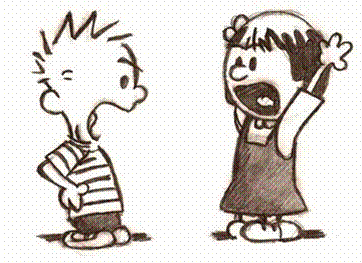
The Unavoidable Triggers
We all have people, situations and issues that trigger us – push our buttons.
For example, a friend’s habit of interrupting while you speak might be making you furious or an environmental issue might be triggering you to the point of losing sleep. These are repetitive situations that can trigger us.
One of the most effective ways of handling triggers is to use EFT on them. I’ve had tremendous success with EFT in upsetting situations.
There will be two kinds of triggers – situations where your attitude and behaviour have the potential to directly influence the outcome, and situations where they don’t. Taking the earlier example – a situation where you can directly influence the situation. After a few rounds of tapping, you might consider telling your friend not to interrupt you. The difference will be that you’ll be much calmer when you ask them to shut up! 😉 You’ll get the confidence to clearly explain how you feel when you’re interrupted and what you’d like instead.
With an environmental, political or social issue you will not have control over the entire situation. Every time you hear someone speak about it or see it on news, you might get triggered. While it’s good to be aware of societal and environmental issues and not be numb to the causes that need our attention, it’s not good for our emotional health to have sleepless nights and meltdowns over them. You’ll also be hurting your love ones with your anger and snappy attitude.
In both these situations EFT can work.
When things are more or less in your control, meaning your attitude and behaviour can directly influence the outcome.
Steps
1. Tap on the emotion
2. Find out what it’s saying. Listen to its message. Here’s a video link on how to tap on anger and its messages.

When things are not in your control, meaning your attitude and behaviour cannot influence the outcome directly or immediately. This kind of tapping needs persistence.
Steps
1. Tap every time you feel triggered. If you’re in conversation with someone and getting triggered, press your finger points.
2. Go deeper – tap on your helplessness about not being able to change anything about a situation.
3. After several sounds you might have a cognitive shift. If not, tap on the things that are in your control; what can you do from your end. Every small change that you work on makes a difference. For example, suppose you decide not to use plastic in your house, that’s a change. It will reduce the helplessness you feel.
Please note: While tapping on repetitive ongoing stressors, you may feel immediate relief but it may not last. Tap regularly and take up any new aspects that come up.


